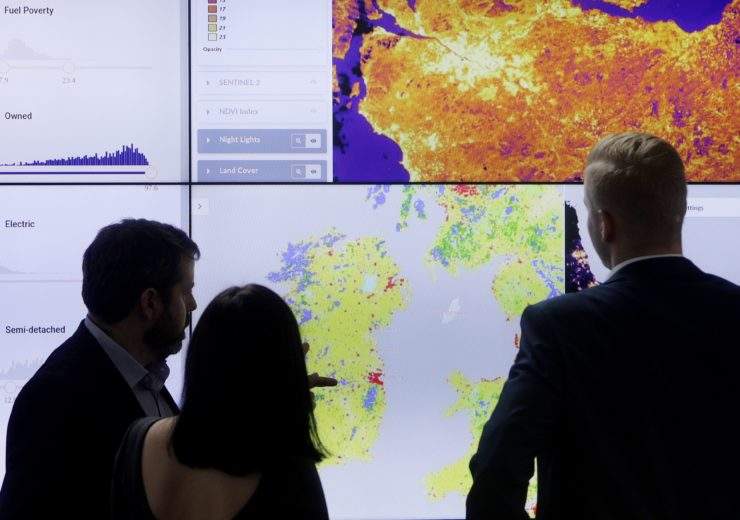European electricity firm E.ON is looking to break the final frontier by using satellites to identify areas of the UK that require better energy efficiency measures in a bid to tackle fuel poverty.

(Photoshoot 0918-031) Earth observation specialist Astrosat join forces to work with E.ON and the European Space Agency to help identify areas across the UK where energy efficiency measures are most needed. Astrosat offices in Musselburgh near Edinburgh.
A new project promising to “harness the potential of space” to improve energy efficiency is set to begin courtesy of a new partnership between electricity firm E.ON, the European Space Agency and Earth observation specialist Astrosat.
The collective plans to collect near-real-time data and images captured from satellites orbiting Earth, including infrared heat mapping, air quality measures and pollution tracking.
This data will then be used to identify areas across the globe that require improved energy efficiency, and to assess whether certain buildings have poor insulation, the condition of housing and air quality.
Michael Lewis, E.ON’s UK chief executive, said: “Our work with Astrosat is about using the almost endless possibilities of space to deliver real benefits on the ground.
“This truly innovative and exciting project is about harnessing the power of space, alongside our experience working with local authorities and delivering real change in terms of fuel poverty and carbon emissions, to help reduce heat loss and unnecessary energy expenditure in regional areas across the UK.”
Although it is currently a UK only pilot that will begin in 2019 there are plans to implement the project across other countries if the benefits can be proven.
Tackling fuel poverty
The Government has committed £6bn to tackling the root cause of fuel poverty and improve the energy efficiency of the poorest homes over the next ten years.

The E.ON satellite scheme makes the process of identifying areas in need of the improvements much more efficient – rather than relying on input from residents who might be wary of reporting themselves as vulnerable or in need of extra help the satellite data is capable of identifying the households that are leaking most heat and would benefit most from improvements.
From later this year the Energy Company Obligation (ECO), a government scheme aimed at increasing energy efficiency across Britain, will make it energy suppliers responsibility to improve the insulation and heating systems of the most vulnerable households.
Secretary of State for Business and Energy Greg Clark said: “This government-backed technology could boldly go where no technician in a van has gone before, with the potential to pinpoint households in fuel poverty or those at risk.
“Matched with government data, this heat mapping technology could mean less time spent on the road and more time dedicated to upgrading homes though our £6bn energy efficiency ECO scheme – the sky’s the limit.”
The project comes as the UK government looks to expand the UK’s space industry with plans to increase the countries global share of the sector from 6.5% to 10% by 2030.
Mr Clark added: “This is our modern Industrial Strategy in motion, with our world-leading space sector showing how innovation can deliver practical solutions to real-life issues.”


